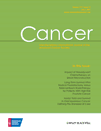
Minimal Social Network Effects Evident in Cancer Screening Behavior
Abstract
BACKGROUND: Social networks may influence screening behaviors. We assessed whether screening for breast, prostate, or colorectal cancer is influenced by the actual screening behaviors of siblings, friends, spouses, and coworkers.
METHODS: We conducted an observational study using Framingham Heart Study data to assess screening for eligible individuals during the late 1990s. We used logistic regression to determine whether the probability of screening for breast, prostate, or colorectal cancer was influenced by the proportion of siblings, friends, and coworkers who had the same screening, as well as spouse’s screening for colorectal cancer, adjusting for other factors that might influence screening rates.
RESULTS: Among 1660 women aged 41-70 years, 71.7% reported mammography in the previous year; among 1217 men aged 51-70 years, 43.3% reported prostate-specific antigen testing in the previous year; and among 1426 men and women aged 51-80 years, 46.9% reported stool blood testing and/or sigmoidoscopy in the previous year. An increasing proportion of sisters who had mammography in the previous year was associated with mammography screening in the ego (odds ratio [OR], 1.034; 95% confidence interval [CI], 1.000-1.065 for each 10% increase). A spouse with recent screening was associated with more colorectal cancer screening (OR, 1.65; 95% CI, 1.39-1.98 vs unmarried). Otherwise, screening behaviors of siblings, friends, and coworkers were not associated with screening in the ego.
CONCLUSIONS: Aside from a slight increase in breast cancer screening among women whose sisters were screened and colorectal cancer screening if spouses were screened, the screening behavior of siblings, friends, or coworkers did not influence cancer screening behaviors.
Citation:
N.L. Keating, A.J. O’Malley, J.M. Murabito, K.P. Smith, and N.A. Christakis, "Minimal Social Network Effects Evident in Cancer Screening Behavior" Cancer, 117(13): 3045-3052 (July 2011)